Animals
-
 Paleontology
PaleontologyThe last woolly mammoths offer new clues to why the species went extinct
The last population of woolly mammoths did not go extinct 4,000 years ago from inbreeding, a new analysis shows.
By Claire Yuan -
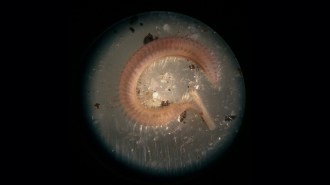 Animals
AnimalsBeneficial bacteria help these marine worms survive extreme cold
Three species of marine worms living in Antarctic waters have beneficial relationships with bacteria that produce antifreeze proteins.
-
 Animals
AnimalsCan leeches leap? New video may help answer that debate
For some, it’s the stuff of nightmares. But a grad student’s serendipitous cell phone video might resolve a long-running debate over leech acrobatics.
By Susan Milius -
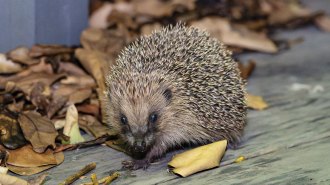 Animals
Animals‘Cull of the Wild’ questions sacrificing wildlife in the name of conservation
In his new book, ecologist Hugh Warwick seeks middle ground in the waging battle that is wildlife management.
-
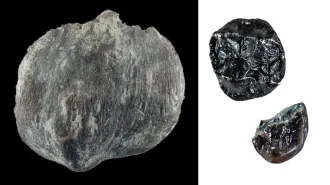 Anthropology
AnthropologyFossil finds amplify Europe’s status as a hotbed of great ape evolution
A kneecap and two teeth belonged to the smallest known great ape, a study contends. If so, it’s the first to coexist with another great ape in Europe.
By Bruce Bower -
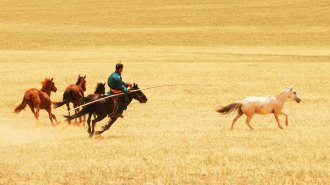 Genetics
GeneticsHorses may have been domesticated twice. Only one attempt stuck
Genetic evidence suggests that the ancestors of domestic horses were bred for mobility about 4,200 years ago.
-
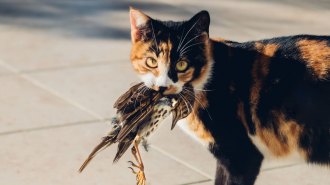 Health & Medicine
Health & MedicineBird flu can infect cats. What does that mean for their people?
Pet owners can take precautions to avoid H5N1, such as keeping cats indoors and making sure they don’t eat raw meat or milk.
-
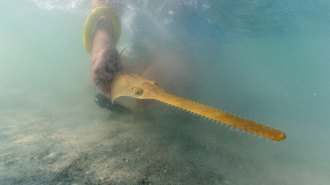 Animals
AnimalsA built-in pocket protector keeps sawfish from ‘sword fighting’ in the womb
What’s to prevent pups, with a snout that resembles a hedge trimmer, from slicing and dicing each other in mom’s uterus? Scientists have the answer.
-
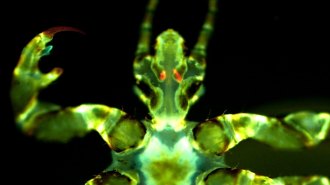 Health & Medicine
Health & MedicineHuman body lice could harbor the plague and spread it through biting
Rats and fleas previously got all the blame, but humans’ own parasites could be involved.
-
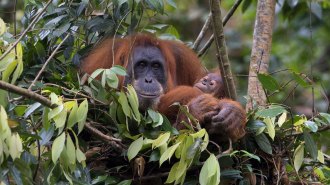 Animals
AnimalsSumatran orangutans start crafting their engineering skills as infants
By 6 months old, young orangutans are experimenting with construction materials, and by 6 years old, they are building platforms 20 meters in the air.
-
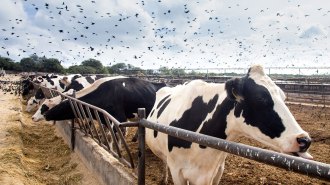 Health & Medicine
Health & MedicineGenetic analyses of the bird flu virus unveil its evolution and potential
The H5N1 outbreak in cattle is giving flashbacks to the COVID pandemic. But this time is different.
-
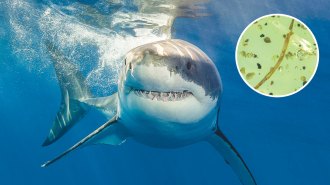 Paleontology
PaleontologyHow did an ancient shark parasite end up fossilized in tree resin?
A worm preserved in 99-million-year-old amber resembles modern flatworms in shark intestines. The rare finding has scientists stumped.